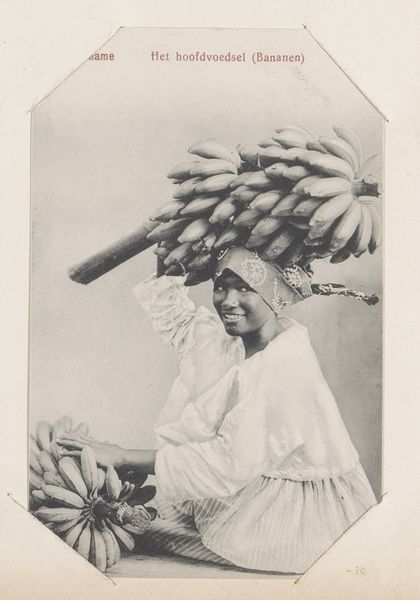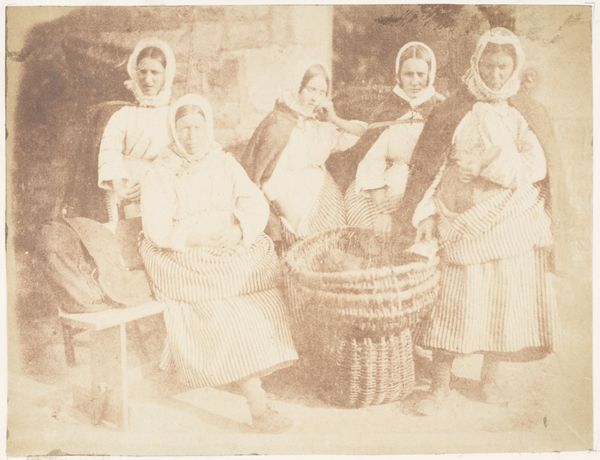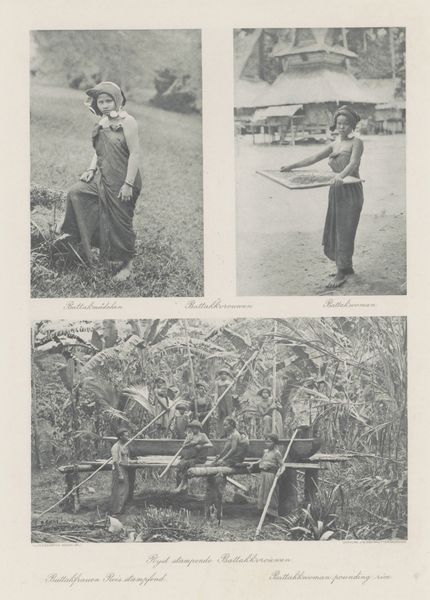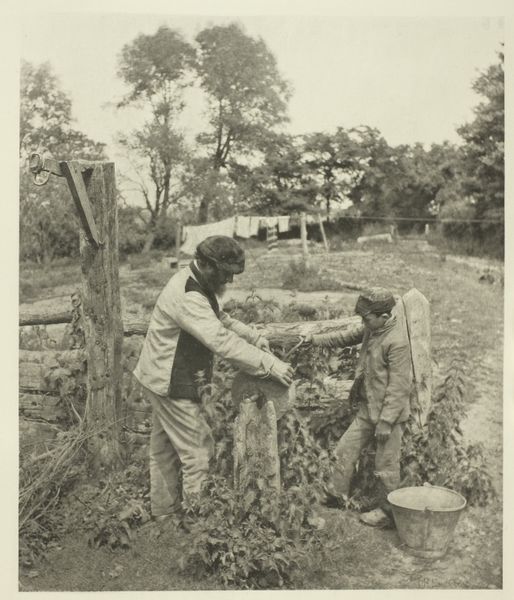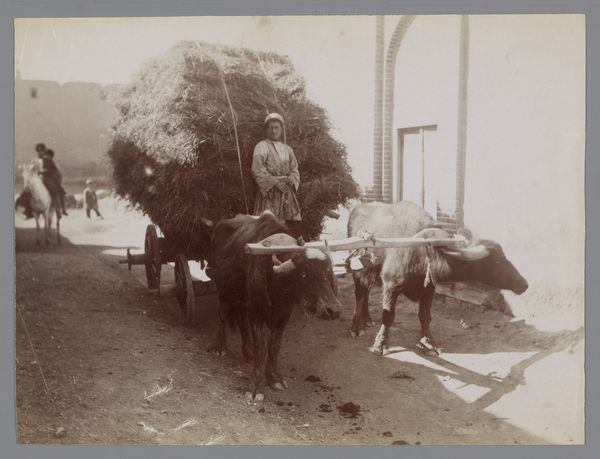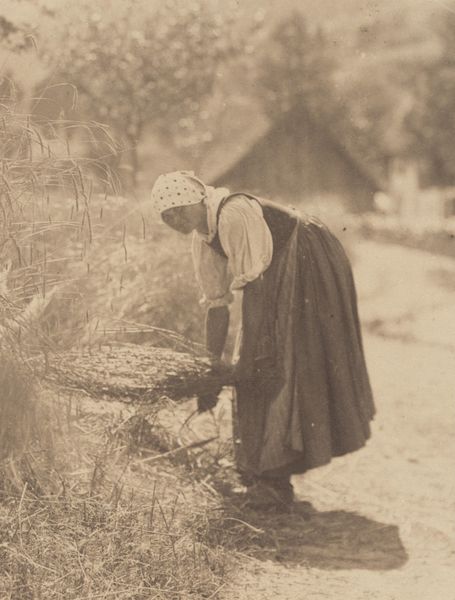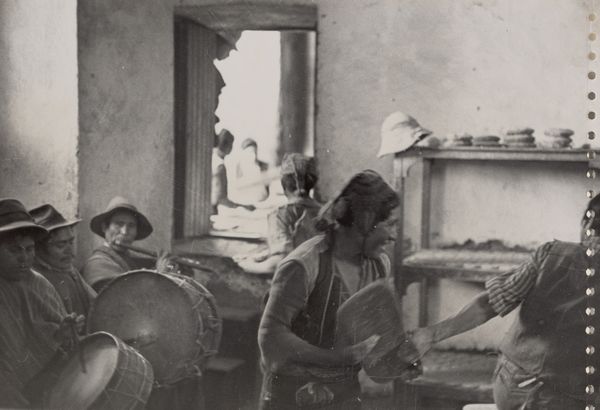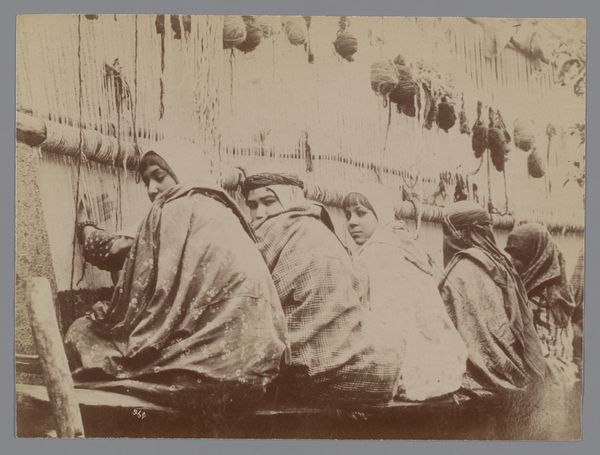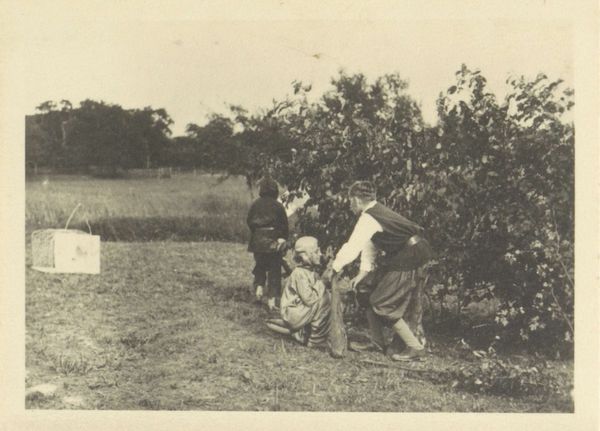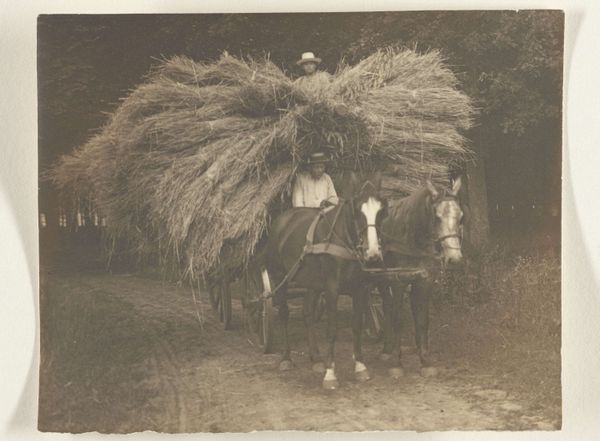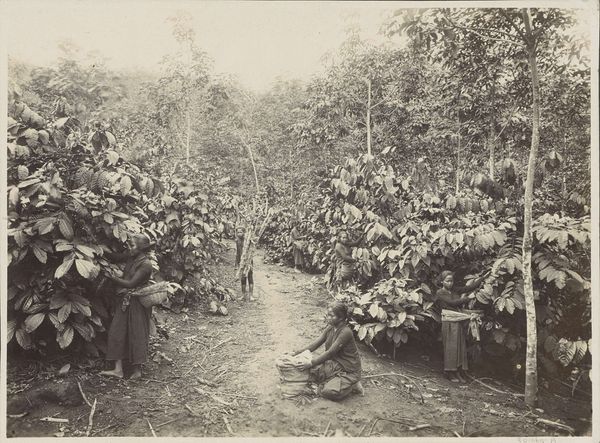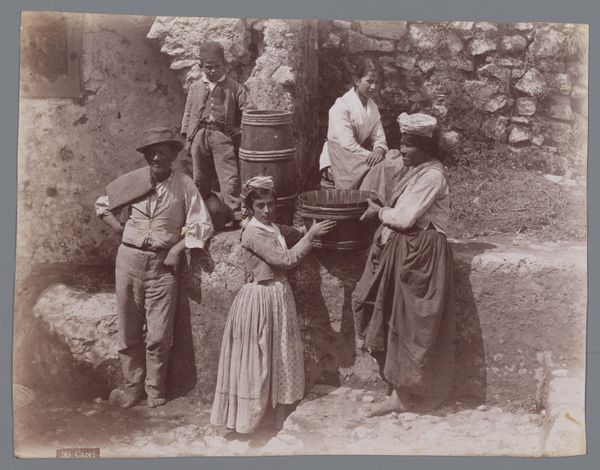
albumen-print, photography, albumen-print
#
albumen-print
#
portrait
#
landscape
#
photography
#
genre-painting
#
italy
#
albumen-print
#
realism
Dimensions: 7 3/4 x 10 1/8 in. (19.69 x 25.72 cm) (image)10 7/8 x 13 7/8 in. (27.62 x 35.24 cm) (mount)
Copyright: Public Domain
Curator: This albumen print, taken circa the 19th century, is titled "Amalfi" and was created by Giorgio Sommer. Editor: Ah, instantly I feel the weight, you know? Of the wood, yes, but also of... life, etched on these women’s faces. It's a poignant snapshot, almost biblical in its starkness. Curator: Sommer's photography gained traction for vividly capturing the everyday life of Italian peasants, particularly within genre scenes and portraits. In an era rapidly modernizing, these images offered Europeans a glimpse into what was often viewed as an untouched and 'authentic' way of life. Editor: There's a timelessness about it. The way the light plays on the stone behind them, those burdens of wood balanced precariously… It could be yesterday. I mean, it's not a glamorous view of Italy; it cuts deeper, somehow. More truthful, perhaps? Curator: These photographs, like postcards of a simpler world, played a key role in shaping perceptions of Italy at the time. They fueled an enduring romantic fascination, both domestically and internationally. The popularity of the photograph gave Sommer economic resources. Editor: Romantic maybe, but tinged with melancholy for me. There's dignity here, certainly, in their posture and their work. Yet, you also get a strong feeling of toil, relentless effort and hard living, what can we read from it today? Curator: The debate regarding their exploitation is vital; one is never able to fully access whether a picture has contributed towards romanticising an act in order to obscure the social complexities present at that time. It’s critical that audiences can learn to analyse these portrayals. Editor: Well said. These visual poems, no matter how beautifully framed, shouldn't let us off the hook. They must invite us to look closer, to question, and to remember the complex realities behind even the most idyllic-seeming image.
Comments
No comments
Be the first to comment and join the conversation on the ultimate creative platform.


